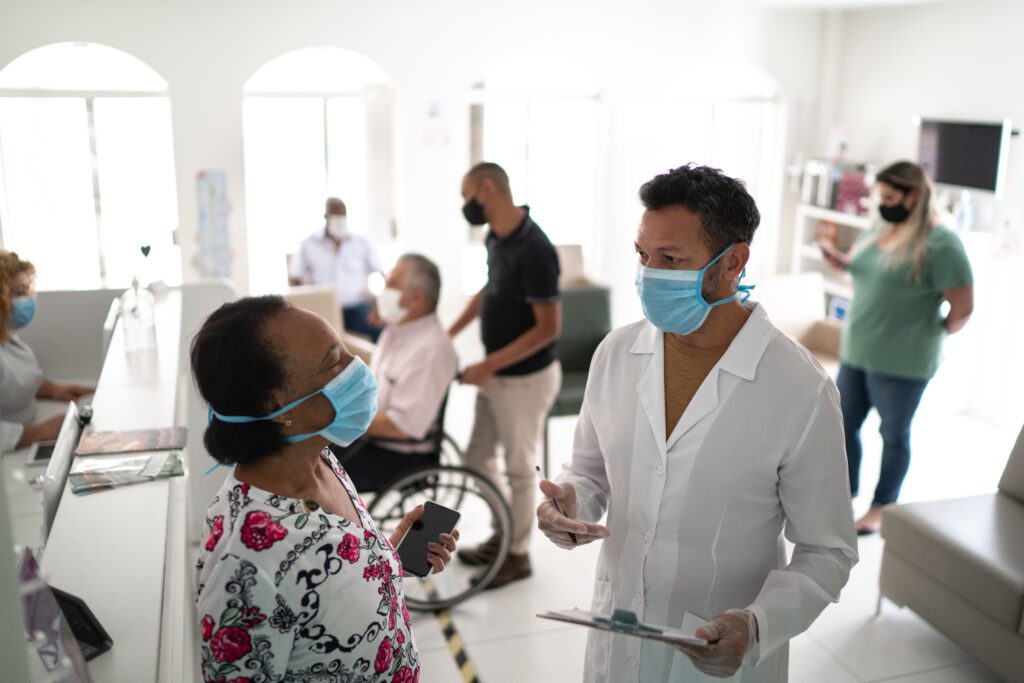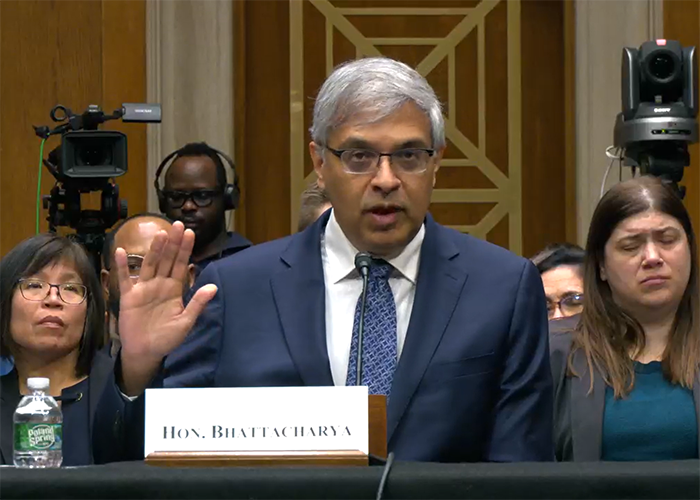The COVID pandemic underscored the reality of medical inequity worldwide, a longstanding issue reflected in clinical trials, particularly regarding the absence of race and ethnicity data.
“One of the things that we’ve noticed, not just in the pandemic, is this problem of missing race and ethnicity information,” explained Carla Rodriguez-Watson, Ph.D., MPH, Director of Research at the Reagan-Udall Foundation for the FDA. “If you do not have this information, where patients are being seen, where their information is being collected, then we have a limited view into what that population distribution of disease is.”
Industry and experts explored this topic during a panel, “Enhancing Clinical Trial Diversity Through a Patient-Centric, Data-Driven Approach,” at the 2024 Biotechnology Innovation Organization (BIO) International Convention in San Diego.
Interview with Darryl Sleep, M.D., Head of Global Public Health at Amgen, at the 2024 BIO International Convention in San Diego
A history of (the lack of ) clinical trial diversity
Women were denied access to clinical trials until the 1980s. Their participation wasn’t required until the 1990s. Similarly, people of color have often been excluded from clinical trials for reasons like inherent bias, location, and even cultural issues like doctors not thinking to ask patients if they are interested in joining or patients not being educated about what questions to ask.
Progress in addressing this issue has been slow. Even though the National Institutes of Health (NIH) Revitalization Act of 1993 was passed to establish guidelines for including women and underrepresented racial and ethnic minorities in NIH-funded clinical research, women, non-binary, genderqueer, and persons of color, among others, remain underrepresented.
Data can help industry, foundations, think tanks, and others to better understand the issue.
The role of data in improving clinical trial diversity
During the 2024 BIO International Convention, panelists reflected on research work being done to address the lack of clinical trial diversity by studying historical data. The Reagan-Udall Foundation highlighted its “Real-world Accelerator to Improve the Standard of collection and curation of race and Ethnicity data in healthcare” (RAISE), which works in collaboration with FDA’s Office of Minority Health and Health Equity to elevate the capture and curation of race and ethnicity data in health care settings. The goal is to improve the quality of healthcare and medical products.
Meanwhile, Amgen has its own project: “Representation in clInical reSEarch” (RISE). Amgen has built a team dedicated addressing the systemic issues that deter people from participating in research.
The Duke-Margolis Institute for Health Policy has published several studies on the issue, including “Point-of-Care Clinical Trials: Integrating Research and Care Delivery,” which outlines steps to enable point-of-care trials to achieve their potential.
“There’s more that sponsors can do competitively to build infrastructure, support, and community engagement,” said Trevan Locke, Ph.D., Assistant Research Director at Duke-Margolis Institute for Health Policy. “With that, I think we’ll make huge inroads.”
‘You have to have a why’
“Why is this important? You have to have a ‘why,’” said Darryl Sleep, M.D., Head of Global Public Health at Amgen. “You need to have a fundamental rationale for doing this.”
“Well, it’s required by the FDA, we have a mandate to have represented trials and populations that are truly reflective of the illnesses that we’re seeking to find solutions for,” he continued.
Despite the government mandate, Dr. Sleep posits that there is a more important reason to do this research. Conducting clinical trials that are not inclusive of all the patients affected by a disease us from addressing historic inequity. Furthermore, making trials more inclusive can help redress inequities by providing solutions for patients who really need them, he explained.
“It’s critically important that we conduct studies that are truly representative of all patients who are suffering with the disease,” noted Dr. Sleep in an interview with Good Day BIO Live. “If we fail to do that, a large portion of the population that are really suffering with the illness will never be able to access that medicine because the data don’t exist.”
“One of the most important things that we can do as a company within the life sciences, whether it’s biotech, pharma, or medtech, is work on solutions together,” he continued. “We have to form partnerships within our industry and with stakeholders.”




